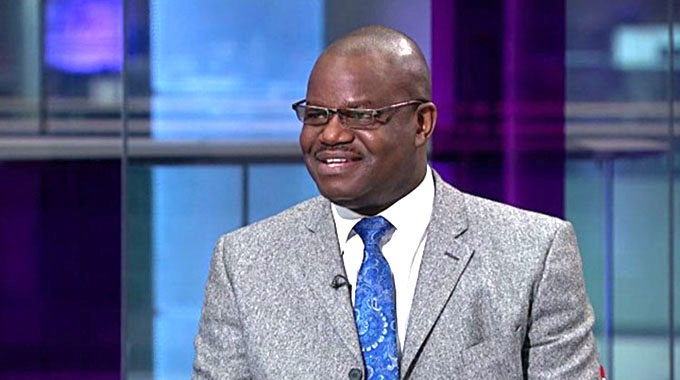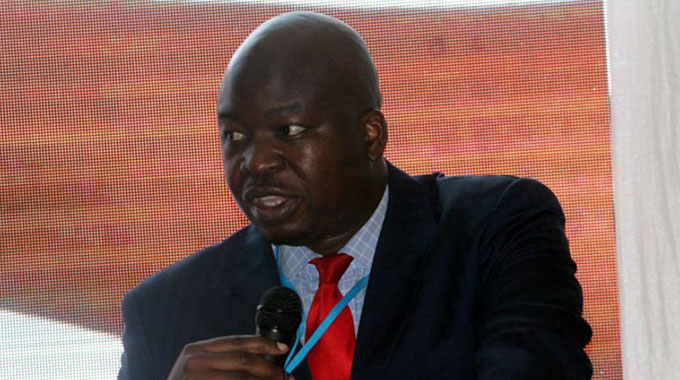Oliver Kazunga
Senior Business Reporter
TREASURY has unearthed fraudulent conduct in the public procurement system where the Government pays for the goods or services but suppliers do not deliver on their obligations, prejudicing the Government huge sums of money.
Last year, the Treasury introduced the value for money initiative to curtail financial prejudice to the State through excessive invoicing, negatively impacting on the efficient utilisation of public resources while harbouring corruption.
On account of the desire to implement an efficient Public Finance Management (PFM) system, the Government last year suspended payment of its suppliers after discovering that some contractors were charging for goods and services using grey market rates.
The suspension of payments to the Government service providers was part of efforts to curtail attacks on the local currency, which was fuelling inflation.
Speaking at an event to launch the Zimbabwe Financial Reporting Manual (ZRFM) and Public Sector Professional Accountancy of Zimbabwe (PSPAZ) Training Office in Harare by Finance and Economic Development Minister Professor Mthuli Ncube on Monday, the Secretary Mr George Guvamatanga said: “Through the value for money exercise, we also realised another very disturbing trend in the public procurement system which is really what is called in the streets ‘air supply’ where orders and invoices are generated and payments are made but nothing is delivered.
“So, we are currently further strengthening our procurement systems, but we have been looking very closely at this.
“We have got several cases currently under investigation of ‘air supply’ and the culprits will be dealt with across the whole of the system, whether it is from Government or suppliers, they will be dealt with the sternest measures that they deserve.”
ZFRM is an ongoing project that entails Zimbabwe’s migration from the rule-based approach to the accrual-based International Public Sector Accounting Standards (IPSAS) framework by December 2025.
The initiative forms part of the Government’s PFM reforms to enhance transparency and accountability.
The ZFRM is expected to guide the implementation of IPSAS by providing local interpretations and clarifying options thereby ensuring consistency of application of the various standards by reporting entities in central and local governments as well as parastatals.
ZFRM is a recommendation of the Implementation Strategy and Plan (IPSAS) launched in 2019.
Through the value for money exercise, Mr Guvamatanga said, there had been significant improvement in savings to the fiscus.
He noted that the Treasury had further engaged the Procurement Regulatory Authority of Zimbabwe (PRAZ) to ensure processes and systems in the public procurement domain were enhanced.
A strong PFM function, he stressed, was critical to the achievement of the National Development Strategy 1 (NDS 1) towards Vision 2030.
Under Vision 2030, the Second Republic aims to transform Zimbabwe into an upper-middle-income economy.
“This is actually a very strong warning to all of those who have been engaged in this air supply that your time has come to an end, and the systems that we are putting in place will make sure that you are all plugged out wherever you are hiding.
“I guess for those who are smart enough, maybe in the next seven days, I would like to advise you to find the goods that you were supposed to deliver — deliver them because we are coming after you,” he said.
Since the launch of the value for money principle, he said, there is now a fully developed system of standardised pricing in Government called commonly-purchased goods through which authorities have been able to set maximum prices across the public procurement domain.
In an interview after the event, Mr Guvamatanga pointed out that: “In the process of managing this value for money, we actually discovered further challenges within our procurement system.
“I called it by its street name (air supply) but actually its fraudulent procurement whereby invoices are sent, payments are made but no goods are delivered.
“We are currently investigating several issues of such instances where the Government paid but no goods were actually delivered.
“This exercise is ongoing, the centralised internal audit unit has been working very closely where we have identified those anomalies.”
So far, he said, indications were that fraud within the public procurement system was rampant not only in Government ministries, departments and agencies but in local Government (rural and urban councils).
“We are now putting in place very strong systems working in conjunction with PRAZ to ensure that we plug this delinquency which again is costing the Government a lot of money.”
Mr Guvamatanga said the fraud cases will soon be reported to the police for the law to take its course adding that on the other hand, Treasury has its own internal disciplinary measures in terms of financial sanctions where those accounting officers found wanting would be asked for restitution.
“If we actually realise that you are negligent, the PFM Act does have provisions for individuals to be personally sanctioned and we are actually looking where individuals are proven to have been negligent, then they will have to pay personally from their own pockets.
“That might even mean that you might have to sell your house or car depending on the extent of the fraud or the negligence that would have been committed,” he advised.




